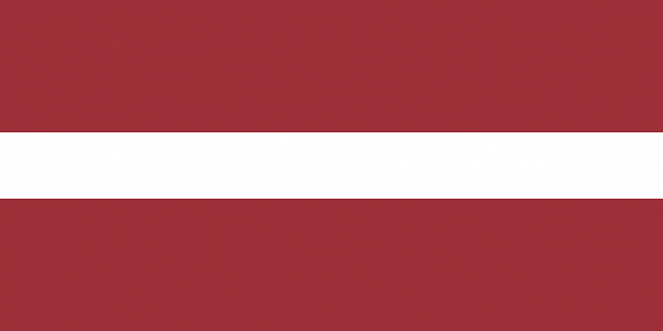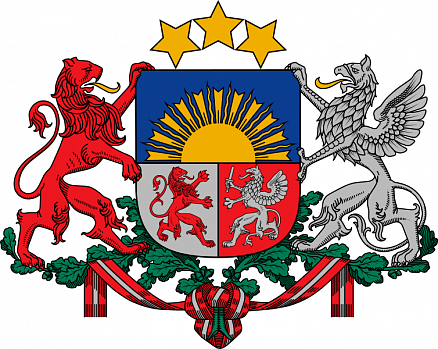 the Republic of Latvia
the Republic of Latvia
First Deputy Foreign Minister Vladimir Titov’s interview to Latvian Russian-language newspaper Segodnya published on November 15, 2017
Question: Mr Titov, what do you think about the current state of Russian-Latvian and more broadly, Russia-EU relations? Are there any positive dynamics? What is Russia's position with regard to building relations with Latvia and the Baltic States in general?
Vladimir Titov: We have to admit that the state of Russian-Latvian relations is far from being ideal and is abnormal for two neighbouring states.
There are many factors behind this situation, including continuing unfriendly rhetoric of the Latvian authorities towards Russia, and the concrete actions of official Riga, which complicate the dialogue. It is difficult to remain optimistic in such a toxic atmosphere. The sanctions imposed by the West against our country, which Latvia actively supports, also hamper cooperation between our states.
However, even in these circumstances, there are positive developments. The Joint Russian-Latvian Demarcation Commission has completed its work, and the 7th meeting of the Intergovernmental Commission was effectively held in August of this year as well. We continue to maintain interdepartmental contacts, cross-border and interregional cooperation, including between the capitals of our countries.
We are keeping our doors open to resuming full-fledged relations with the Baltic countries. We will not impose ourselves as friends, but we are willing to move forward together and to deepen cooperation across the entire range of bilateral relations inasmuch as our Baltic partners are committed to do the same.
With regard to our relations with the European Union, on the one hand, Brussels' position sets the tone for discipline for all EU member states, but, on the other hand, it is often determined by the Russophobic minority of the states based on the principle of the lowest denominator which forms a consensus. We maintain a dialogue with Brussels at various levels, including on international matters, but the payoff could be greater. We believe that stagnation in our relations does not meet the interests of either the European Union or Russia. According to our observations, Europe is growing weary from this situation. Let's hope that a realistic approach to the value of cooperation within the space from Lisbon to Vladivostok will prevail over attempts to demonise Russia.
Question: Radical nationalist forces have stepped up their activities in light of the forthcoming parliamentary elections in Latvia, and require the curtailing of education in the languages of ethnic minorities. The Latvian Minister of Education joined this campaign against ethnic minorities and launched a new “reform” where upper form pupils at Russian schools will have classes only in the Latvian language. How may Russia react to these attempts to curtail education in the languages of ethnic minorities?
Vladimir Titov: Of course, this kind of a plan cannot be regarded other than another stage of the systematically pursued policy to squeeze the Russian language out from various spheres of life in your multi-ethnic state.
We are aware that not all political forces in Latvia support such policies. President Raimonds Vejonis said that at this particular stage the country's educational system is simply not ready for the proposed reforms. Decisions on such sensitive matters should not be made without taking into account the opinion of the significant Russian-speaking population of Latvia. We hope that the petition for preserving bilingual education in that country will not go unnoticed in the Latvian parliament.
Question: What does Moscow think about the situation with the rights of Russian compatriots in Latvia? Does this situation worsen, improve, or remain unchanged?
Vladimir Titov: Unfortunately, the situation is not getting any better. Even though more than 50 recommendations by leading international organisations, including the UN and the OSCE, on simplifying the procedure for naturalisation, granting electoral rights to “non-citizens,” and complying with the entire package of linguistic interests of ethnic minorities have been adopted over the past 15 years, the situation of our compatriots in Latvia has not improved. The European Union is shying away from discussing this topic saying that all these matters can be resolved within the framework of national legislation. However, this never happens.
Mass statelessness remains an acute problem. Isolated attempts to remedy the situation are clearly insufficient to eradicate this phenomenon, which is a historical aberration and is unacceptable for modern democracies. I would like to urge the Latvian authorities not to try to prove the absence of problems in this area, but to take real steps to address them in accordance with numerous recommendations by the relevant international organisations.
The approval by the Latvian Saeima (parliament) in the second reading of the draft law on conferring the status of a participant of World War II to all the participants regardless of who they fought against – Nazi Germany and its allies or the Soviet Union – provoked outrage in Russia. This cynical venture contradicts the ruling of the Nuremberg Tribunal and leads to a split in society.
It's a shame that the Russian-speaking diaspora activists are being constantly subjected to pressure from the authorities. In an effort to protect the legitimate rights and interests of our compatriots, we are pushing to have them treated as full-fledged citizens and residents of the country, not as someone's agents of influence.
Question: Official Riga accuses Russia of conducting a hybrid war, an information war against it, even accusing it of cyber attacks. Harsh accusations against Russia could also be heard during the recent military exercises West-2017. What would you say about this?
Vladimir Titov: Their fantasy runs wild, as they say. Accusing Russia of cyber attacks has become a real phobia. However, no one has ever provided any proof of this. We have repeatedly stated that we are ready, in close contact with our foreign partners, to discuss the most pressing matters related to ensuring international information security. No one seems to be willing to meet us halfway. Apparently, it is convenient to intimidate one’s own citizens with horror stories and to use them to account for the sharp growth of protest sentiment as well as all the troubles that Europe is currently confronted with.
With regard to the West-2017 exercises, they were transparent and fully complied with international norms, which in fact was recognised by many of our partners. Meanwhile, the fact that the West-2017 exercises were preceded by the unprecedentedly large-scale Aurora exercises by NATO countries, Sweden and Finland, the scenario of which was provocative with regard to Russia, is hushed up.
Question: Do you agree that the relations between Russia and the West represent a genuine Cold War and the situation is degrading?
Vladimir Titov: Relations between Russia and the West are going through hard times. Instead of maintaining a constructive dialogue and discussing the matters at hand, our Western partners have, unfortunately, adopted a different path and chose to expand the NATO infrastructure and to deter Russia. The countries outside of NATO and the EU are forced to make a choice with regard to whose side they are on, the West or Russia. This is the root cause of the systemic problems that mar Russia's relations with the West.
Further degrading the situation is detrimental for both sides. Our partners seem to be starting to understand this. So, some dialogue formats are being restored, including the Russia-NATO Council meetings. Importantly, our colleagues should realise that the need for a serious conversation about our joint future has long since been ripe. It's not just about security issues. We continue to believe that the attractiveness and the competitiveness of our continent will benefit from creating a common economic and humanitarian space stretching from the Atlantic to the Pacific, so that the recently formed Eurasian Economic Union could act as an integrating link between Europe and the Asia-Pacific region.





